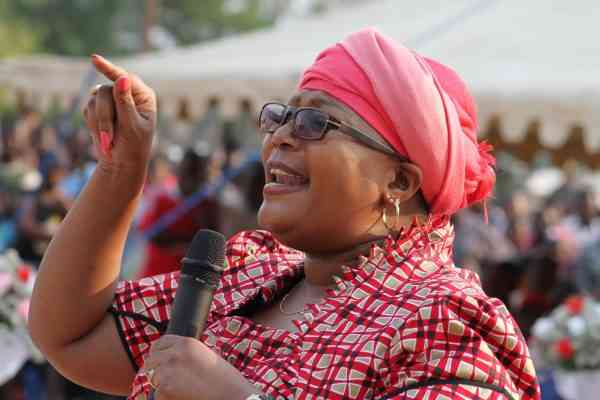
OPPOSITION legislator, Thokozani Khupe, has demanded a detailed update on cancer-fighting initiatives funded by the sugar tax.
Finance minister Mthuli Ncube introduced a sugar tax at US$0,001 per gramme of sugar in the 2024 national budget.
The tax was meant to generate funds earmarked for cancer treatment through the procurement of vital equipment, modern drugs and strengthened infrastructure.
Available statistics indicate that over US$20 million had been collected as of November last year.
Raising a point of national interest in Parliament, Khupe said there was scant evidence that the funds were being utilised towards cancer treatment interventions.
“The proceeds from this tax were intended to be directed specifically towards the fight against cancer, to procure life-saving equipment, essential medicines and to strengthen the overall cancer response infrastructure,” Khupe said, as she demanded a ministerial statement on the matter.
The statement should provide a comprehensive update on the following: the current status of the sugar tax fund, specifically how much remains available beyond the US$38 million already disbursed."
“The progress made in the procurement of state-of-the-art cancer treatment equipment and essential medicines.”
- Budget dampens workers’ hopes
- Govt issues $24 billion Covid-19 guarantees
- Letter to my People:They have no answers for Nero’s charisma
- ZMX to enhance farm profitability
Keep Reading
She added: “Measures are being taken to ensure transparency, efficiency and value for money in the procurement process. The urgency of this request cannot be overstated. "
Zimbabwe's cancer treatment services are in a dire state, with hospitals struggling to cope with late-stage diagnoses and critical cancer equipment shortage, leaving patients to die.
A recent Parliamentary Portfolio Committee on Health and Child Care report reveals that non-communicable diseases account for 36% of deaths in Zimbabwe, with cancer being a major contributor.
Everyday of delay costs us lives. We are losing mothers, fathers, brothers, sisters — productive citizens whose potential contribution to society is being lost due to late diagnosis, inadequate treatment or lack of access to modern cancer care,” Khupe said.
"The fight against cancer is not merely a medical issue. It is a moral imperative and a national priority.”
Tenderpreneur Wicknell Chivayo was recently exposed as the beneficiary of a staggering US$437 million government contract for the supply of cancer treatment equipment without going through the tender process. He denies the claims.










